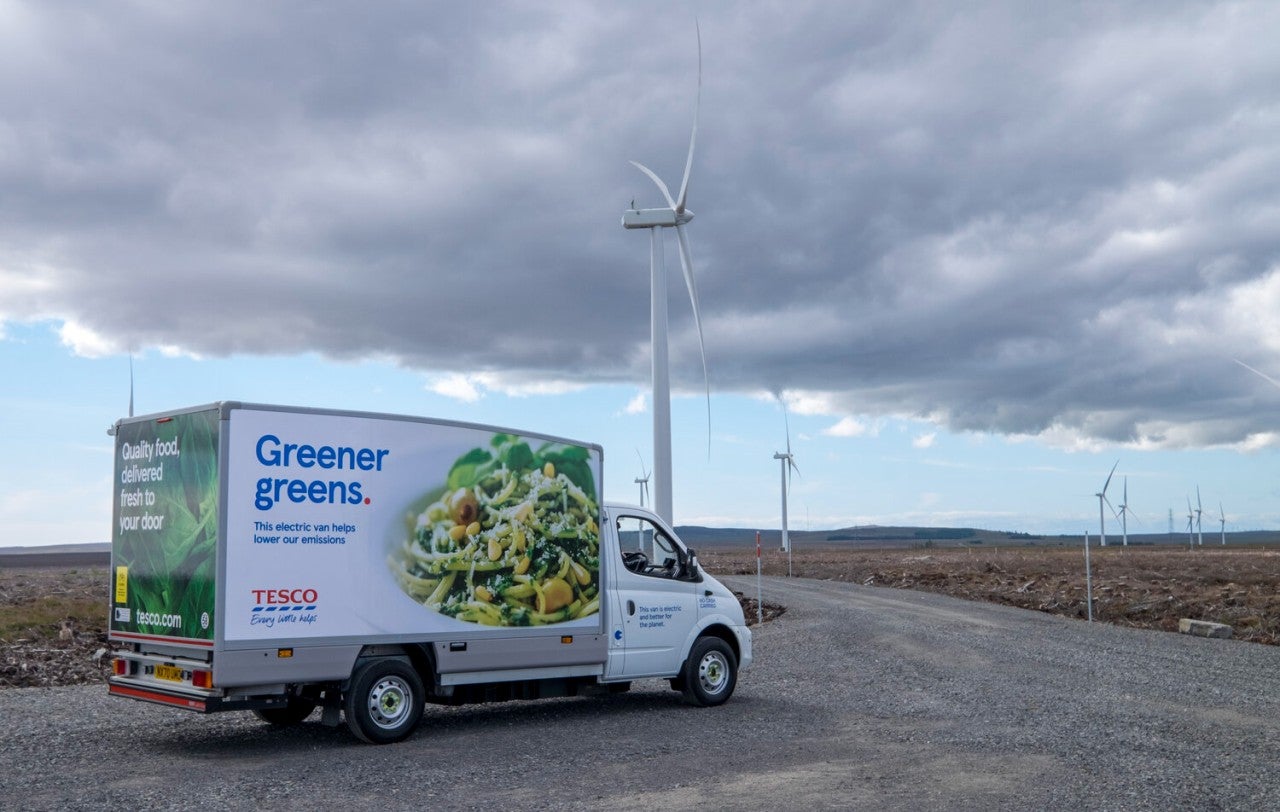
UK-based supermarket chain Tesco has chosen electric vehicle (EV) charging solution provider EO Charging to power its home delivery fleet of electric vans.
The retailer has rolled out 30 electric vans this year and plans to add another 150 next year.
It aims to move to an all-electric delivery vehicle fleet by the end of 2028.
EO will be responsible for end-to-end electrification services, including consultation, charging hardware, full-time support and maintenance.
It will also provide an onsite service-level agreement for the customer’s key charging infrastructure.
The company will initially supply more than 200 alternating current (AC) fast chargers and five direct current (DC) rapid chargers at five sites in Lakeside, Oxford, Enfield and Glasgow.

US Tariffs are shifting - will you react or anticipate?
Don’t let policy changes catch you off guard. Stay proactive with real-time data and expert analysis.
By GlobalDataThe sites will offer day-to-day charging necessities and cover short turn-around times for vehicles.
EO Charging founder and CEO Charlie Jardine said: “Tesco is one of the largest and most important businesses in the UK so it’s a privilege to play a part in its transition to electric vehicles as part of its decarbonisation strategy.
“Our focus is now to help the business optimise its fleet performance and provide round the clock support and ongoing maintenance of their charging infrastructure.”
EO’s charging solutions are used by several major companies, including Amazon, DHL, Go-Ahead and Uber, in the UK and Europe.
EO Cloud, a software application that combines charge scheduling, site load management, vehicle telematics integration and energy data, will manage Tesco’s charging infrastructure.
This is expected to reduce infrastructure installation costs and improve fuel costs for each vehicle.
Last month, Tesco announced a commitment to reaching net-zero emissions across its supply chain by 2050 as part of its efforts to address the climate crisis.
The retailer has also set a target of reaching net-zero emissions across its Tesco Group operations by 2035.



